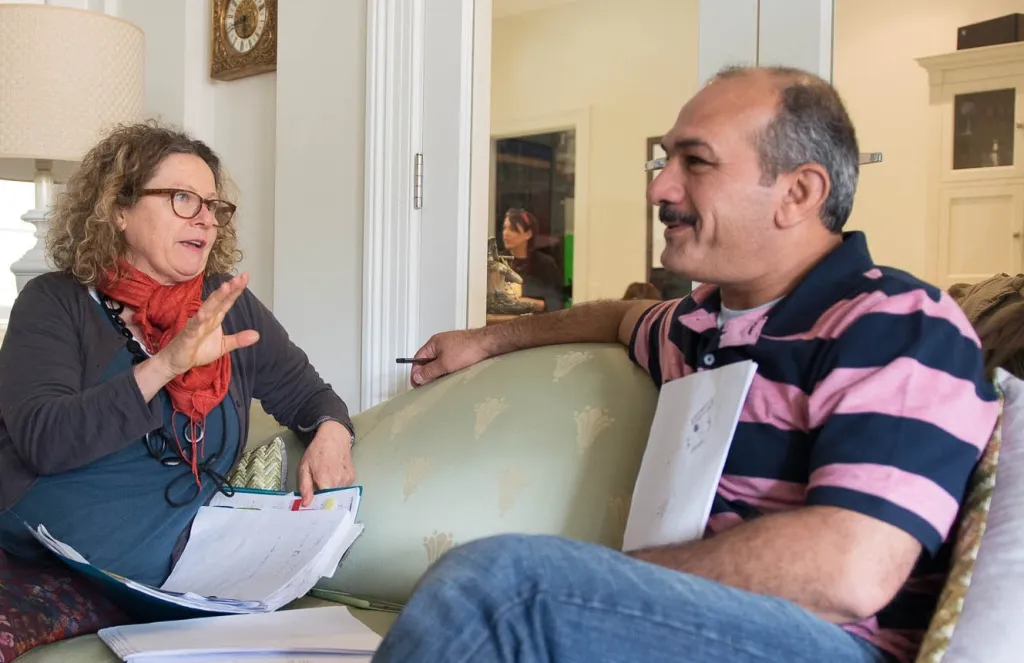Subscribe to The Curb podcast via RSS feed, Apple Podcasts, Spotify, iHeart Radio or Google Podcasts. Download the episode directly here.
With her delicate and gentle drama Damage, director Madeleine Blackwell has crafted a parable that layers grief, trauma, a sense of location and what it means to live away from home, and more into an emotionally enriching experience. Damage follows Ali, played by Ali Al Jenabi, a refugee in Australia using a friends taxi license to earn some small aspect of a living. As he drives the streets of Adelaide at night, he picks up Esther, played by Madeleine’s mother Imelda Bourke.
Esther is a lost soul who’s unsure of the name of where she needs to go, and certainly has no idea of how to get there. Equally so, Ali is unfamiliar with the streets, relying solely on a soulless GPS device to guide him where he needs to go. At first, their relationship is a fractured one, with Ali quickly becoming frustrated with Esther’s inability to tell him where he needs to go. Equally so, Esther’s frustration is levelled at how Ali is treating her, as well as her ambivalence in regards to his accent.
On paper, Damage suggests that it will be a film about two people connecting with one another through an understanding of the others life state, and while that is an aspect of the film, Madeleine layers it with imagery that reflects the continued surveillance state that we live in. It’s a surveillance state that constantly denies the ability to rest, as we see images of Ali’s home country in ruins, or clips of rampant progress with space shuttles bursting into the atmosphere, or even a commuter train blitzing through a snow covered track, smothering its awaiting passengers in filthy snow, all culminating in a sense of stress and anxiety that we simply don’t have the space to escape from.
These motifs inform Ali’s life, and in doing so, they try and answer the pointed question: why did Australia go to his home land and destroy it, forcing Ali to seek refuge here? In this sense, Damage takes inspiration from Ali’s own life, which was documented by Robin De Crespigny in her award winning 2012 book The People Smuggler. Shots of waiting taxis also filter into the piece, leading to the question of how many people are experiencing the same life journey as Ali is in Australia.
That question is also applied to how Australia treats its elderly, as seen with drifting Esther’s story. It’s not long before we see the path she is following which presents her as a cognisant individual on the cusp of losing her grounded sense of being.
Damage is a powerful and impressive drama film, the kind that we deserve to see more of on Australian screens. In the above interview, Madeleine talks about the five year journey to bringing Damage to life, what it was like to work alongside her mother, and the way that music flows into the film in a reflective and enriching manner.
Damage is in Australian cinemas from November 9 and deserves your full attention.



